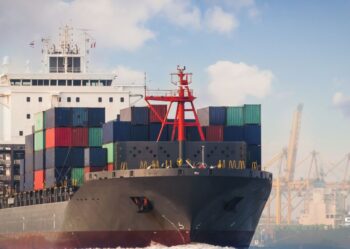Middle East Africa press review

SNECI presents you its Middle East Africa press review :
Launch of the Fiat factory in Algeria
Fiat announced the launch of its production in Algeria, in Oran. The first Algerian Fiat car will leave the production lines on December 11, 2023. This step is part of Algeria’s automotive history.
The Oran factory will produce four different models: the 500, the Tipo, the 500X, and the Doblo. Annual production is estimated at 90,000 vehicles. This announcement aroused great enthusiasm in Algeria, where Fiats are very popular. Algerian consumers, however, wonder to what extent the prices of Algerian Fiats will be advantageous compared to imported Fiats.
On the other hand, this Italian car factory is an opportunity to revitalize the city and the local market. Indeed, the factory will be equipped with efficient and modern technologies and new jobs will be created.
NEO Motors launches its first production in Morocco
Neo Motors, Morocco’s first car manufacturer, launched its first range of cars in Morocco last month. The company has delivered its 200 pre-orders of gasoline cars and plans to continue sales in the domestic and international markets.
The founder of Neo Motors, Mohamed El Amine El Ouazzani, is determined to grow his production. He wishes to list the company on the stock exchange to benefit from the investments necessary for the electrification of its future production.
“Electrification is a priority for Neo Motors,” said El Ouazzani. “We want to offer cars that are more environmentally friendly and more efficient.”
Neo Motors plans to launch its first electric car in 2024. The company also announced plans to build a new factory in Morocco to produce electric vehicles.
Gulf countries strengthen their influence at the IMF
Gulf countries, including Saudi Arabia, Qatar, and the United Arab Emirates, want to play a greater role in the governance of multilateral financial institutions, particularly within the International Monetary Fund (IMF). These countries, which have budget surpluses thanks to their oil revenues, have already increased their financial contributions to the institution and have created an IMF office in Riyadh, the capital of Saudi Arabia.
This strategy is part of a broader desire by Gulf countries to influence IMF recommendations regarding the debt crisis of poor countries and the fight against global warming.
They are ready to provide financial aid to low-income countries which will however have to implement economic reforms in exchange for this aid. Regarding the fight against global warming, the Gulf countries are opposed to carbon taxation. They believe that this measure would be harmful to their oil economies.
This rise in power could significantly impact the institution’s governance and global economic policies.
Volkswagen is interested in Egypt
Volkswagen, the German car manufacturer, plans to create an automobile zone in the Egyptian port city of Port Said. A feasibility study has already been launched in partnership with the Suez Canal Economic Zone and the sovereign fund of Egypt for the construction of a painting and sheet metal stamping factory, as well as a logistics center.
The project, expected to require several million dollars of investment, could create thousands of jobs. This agreement is part of the Automotive Industry Development Program (AIDP) launched by the Egyptian government in June 2022. The AIDP aims to make Egypt a hub for the African automotive market, particularly electric vehicles.
Solar mini-grids in Africa: a promising solution
In Africa, nearly 600 million people do not have access to electricity. The development of solar mini-grids is a promising solution to bridge this energy gap.
Solar mini-grids are electrical installations that provide electricity to isolated rural areas where the national electricity grid is not accessible. They are more affordable than deploying the national electricity grid and are more environmentally friendly.
A concrete example of the positive impact of solar mini-grids is the village of Okouta-Ossé, in Benin. After the installation of a mini solar power plant in 2022, the inhabitants of the village were able to benefit from numerous advantages, such as lighting, the possibility of keeping fresh food, and even the development of economic activities.
The development of solar mini-grids still faces many challenges, such as the reluctance of private investors, the slowness of projects, and the lack of coordination between different African countries.
However, governments and private investors are beginning to realize the potential of solar mini-grids. Several African countries, such as Kenya, Nigeria, and Benin, have developed policies favorable to their development, by promoting entrepreneurship for example.
Check in our other news on our website to see more Middle East Africa press review.





